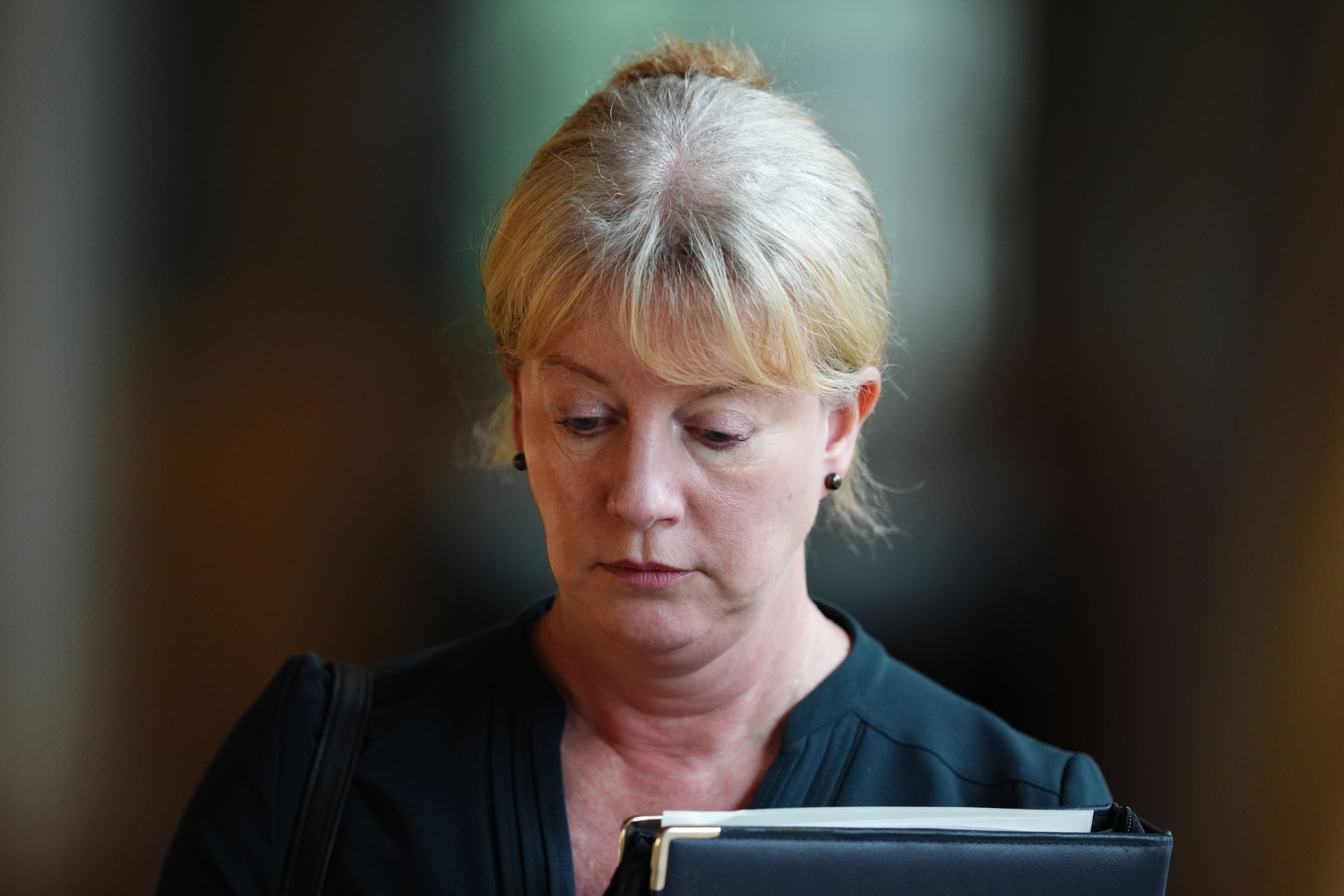Robison says ministers put in ‘as much as we can’ to try to stop council strikes
Scottish Finance Secretary Shona Robison said she was ‘disappointed’ members of Unison had voted against the local government pay deal.

Your support helps us to tell the story
From reproductive rights to climate change to Big Tech, The Independent is on the ground when the story is developing. Whether it's investigating the financials of Elon Musk's pro-Trump PAC or producing our latest documentary, 'The A Word', which shines a light on the American women fighting for reproductive rights, we know how important it is to parse out the facts from the messaging.
At such a critical moment in US history, we need reporters on the ground. Your donation allows us to keep sending journalists to speak to both sides of the story.
The Independent is trusted by Americans across the entire political spectrum. And unlike many other quality news outlets, we choose not to lock Americans out of our reporting and analysis with paywalls. We believe quality journalism should be available to everyone, paid for by those who can afford it.
Your support makes all the difference.The Scottish Government has put in “as much money as we can” to try to avoid strikes by council staff, Holyrood’s Finance Secretary has insisted.
Shona Robison said, while it was “disappointing” that Unison, Scotland’s largest local government union, had voted against the latest pay deal, the issue was one for the council body Cosla to resolve.
Her comments came after Unison members voted by 86% to reject an offer which would have given staff either an hourly pay increase of 67p or a 3.6% salary rise, whichever is higher.
That vote means that waste and recycling staff in some areas could walk out on strike, while in some areas non-teaching staff in schools could take action, potentially leading to school closures.
Ms Robison told how the Scottish Government had been doing “everything we can” to prevent “disruptive” strike action.
The Finance Secretary told BBC Radio Scotland’s Good Morning Scotland programme: “We have put as much money as we can into these envelopes, to try to avoid what is costly industrial action.”
What we have been able to do as a government is to support the funding envelope Cosla has been able to provide
Stressing it was a “fair offer” which was above the rate of inflation that had been made to council workers, she told how Scottish Government and Cosla would “continue to work with the unions to make sure we can avoid costly industrial action where we can”.
But she added: “What is important now is that the employer, local government, continues to discuss with Unison to see if that costly industrial action can be avoided.”
Ms Robison said: “At the end of the day Cosla are of course the representative body for local government who are the employers in this situation.
“What we have been able to do as a government is to support the funding envelope Cosla has been able to provide.”
With the deal having already been accepted by GMB trade union members, she added that “other unions clearly think it is a fair offer”.
The Finance Secretary’s comments came after she cited the pressure to fund public sector pay deals as one reason why the Scottish Government was looking to make some £500 million of cuts from its budget for this current year.
The bill for pay deals is expected to cost the Scottish Government an additional £800 million, Ms Robison told MSPs.
To help pay for that the Scottish Government is making cuts elsewhere and is also using up to £460 million of cash remaining from the ScotWind scheme which saw parts of the Scottish seabed leased out for offshore wind projects.
Ms Robison said the Scottish Fiscal Commission had confirmed there was £460 million in this that was “as yet unallocated” but added she would only use all of this cash if the UK Government fails to provide additional resources for public sector pay.
“The real crux comes down to how much of the UK pay review body pay deals, how much of that is funded by the UK Government,” she said.
“If more of it is funded I will have to draw down less of the ScotWind.
“If less of it is funded I will have to draw down more of the ScotWind.
“So we will have to see where we end up.”
The Finance Secretary continued: “I don’t want to deploy all of the £460 million I announced yesterday, that will depend on how much of the pay settlements are supported through UK Government funding.
“If more is supported I can draw down less of that money, and I want to draw down less of that money.”